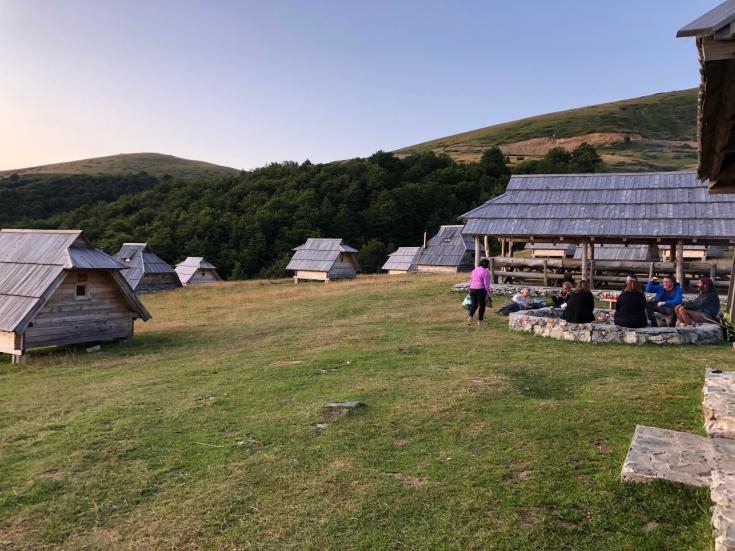The social dimension of agritourism: key learnings

On 10 September 2024, the Policy Learning Platform organised a webinar on the topic of the social dimension of agritourism. The webinar aimed to explore the collaborative and social benefits of agritourism for European regions.
Webinar agenda
Navigate the agenda below to the topic of your interest.
The webinar has been designed and moderated by Mart Veliste and Erik Gløersen, Thematic Experts for a more social Europe.
00:01:10 Introduction to the topic and the Policy Learning Platform by Mart Veliste
00:10:07 Presentation by Eline de Smet on the BrandTour project and sustainable tourism of East-Flanders
00:22:58 Q&A: what lessons did you learn from this experience, and which ones should others avoid?
00:24:14 Q&A: what were the pre-conditions to establish a proper consultation with stakeholders?
00:26:41 Q&A: how did you attract these stakeholders into your network?
00:29:41 Presentation by Simina Manea on the Sibiu Local Breakfast
00:44:59 Q&A: is there a new need related to responsible travellers, who prefer agricultural tourism?
00:46:21 Q&A: how is the delivery of the products organised in rural areas, to bring them to the consumers?
00:48:44 Q&A: do you use geographical certifications for the products?
00:50:20 Q&A: who is helping the producers and hosts with the marketing purposes?
00:52:52 Presentation by Susanne Urschler on the Pöllauer Pear Festival and SMEOrigin project
01:04:32 Q&A: What would be the first step to create such a popular Festival?
01:06:12 Q&A: Has the festival become financially more autonomous over the years?
Panel discussion
01:08:56 Q&A: What is the impact of social considerations when drafting strategies for agricultural tourism?
01:13:57 Q&A: How do the producers and hosts work together?
01:18:44 Q&A: Is agricultural tourism still mostly targeted at locals, or do you also attract international tourists?
01:23:19 Q&A: How did you convince the producers who already have their branding to give it up for a collective one? How did you avoid conflicts on this?
Key learnings
There are several benefits to advocating for agritourism initiatives. These can range from increased quality and competitiveness of SMEs to shorter supply chains and stronger differentiation on the travel market. From the guests’ perspective they get premium experiences and higher engagement with the local community. And normally such initiatives also help keep local culture and traditions alive. For example, “eventification” is a good format where local events can be set up around local traditional products. Tourism in agricultural areas should be supported and promoted also from the perspective that tourism is the sector that can integrate and keep young people in the rural communities.
Nonetheless a balanced perspective on local impacts is needed. While any tourism initiative should consider the impact on local communities it is nonetheless also true that for the local producers and providers the key driver is still making a living and building their business. Thus, a balance is needed between the commercial and social aspects when planning agritourism promotion and initiatives and the broader policy framework.
Tightly knit local communities with well-structured associations and well-established bodies representing local businesses are sometimes considered a precondition for the successful development of agritourism. However, in other localities, actors experience that agritourism helps structure local communities and business environments. To establish virtuous circles of interaction between these interlinked dimensions, every locality or region needs a strategy tailored to its starting situation.
Patience is needed when reaching out to the target group – small agricultural/food or accommodation providers – with agritourism initiatives. These SMEs are often very busy with their day-to-day activities and survival. Hence, starting early and planning sufficient time buffer is key to implementing agritourism practices. Getting food and tourism industry to collaborate is also not a one-time effort, but an ongoing process that requires some intermediation either from the local business support organization or the local tourism agency.
Agritourism practices tend to align well with the new trend of responsible travel. For example, being able to eat local produce in the region one is visiting is a good contributor to this cause. More impact can be had if the tourism industry and agencies generate the context for involvement and responsible attitudes compared to when this responsibility is left on the individual traveler. Telling a tourist “to be responsible” is a harder sell than “go to this beautiful local village and you can taste the delicious local food.” However, the local tourism providers require further guidance on how to set up such responsible experiences for the visitors.